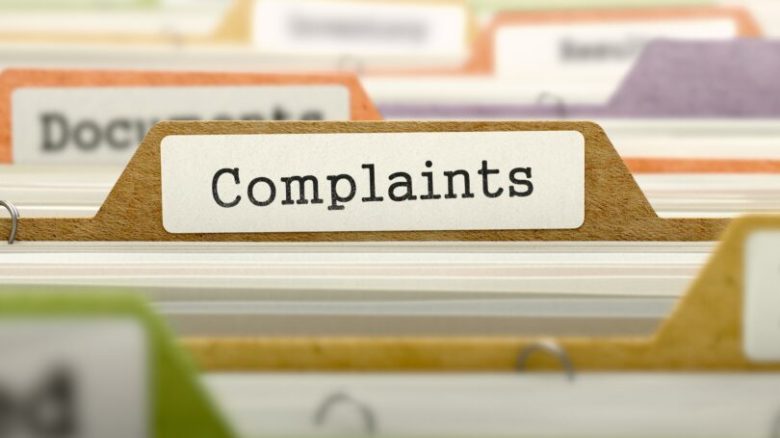Dealing with consumer finance issues can be difficult, but knowing how to handle them can help you get your bank, credit card company, and other financial institutions to resolve your problems. If you’ve experienced billing errors, unpaid charges, or poor customer service, knowing how to file a complaint properly can help you get a result. This tutorial will show you how to complete all the steps, from preparing documents to verifying the content of your complaint.
Understanding Consumer Finance Complaints
Consumer finance complaints can involve many different issues with financial products and services. These issues may involve credit cards, mortgages, student loans, debt collection, or banking services. Billing errors, unauthorized transactions, deceptive advertising, poor customer service, or violations of consumer protection laws are all common issues. Before filing a complaint, it’s crucial to understand the actual consumer finance issue. Your complaint should focus on a specific issue with a financial product or service that has harmed you or made your life worse. Simply filing a formal complaint may not be enough if you’re dissatisfied with a company’s overall policies. However, if they’ve violated your rights or breached a contract, that may be sufficient.
Gathering Information
Preparing documents is crucial for filing a consumer finance complaint. Gather all important documents, such as account statements, contracts, receipts, emails, and correspondence. Keep a record of everything that happened during the call, including the date, time, representative’s name, and the content of the conversation. If you have already tried to resolve the issue directly with the company, please document your actions. The more evidence you have, the stronger your complaint will be. List a timeline of events to help you clearly present your case. This preparation phase is crucial because it demonstrates your sincerity in attempting to resolve the issue and provides regulators with the information they need to properly investigate your complaint.
Choosing the Right Channel
There are many ways to file a consumer financial complaint, and the one that works best for you depends on your circumstances. The Consumer Financial Protection Bureau (CFPB) handles complaints about most financial products and services. You can easily file a complaint online. If you’re experiencing problems with your bank, you can also contact bank regulators. For example, the Office of the Comptroller of the Currency regulates national banks, and the Federal Deposit Insurance Corporation regulates state-chartered banks. The consumer protection divisions of state attorneys general’s offices often handle financial issues. You can also file a complaint with the Better Business Bureau, which can help you and your bank communicate. In some cases, you may need to contact multiple agencies to ensure your complaint receives the attention it deserves.
Submitting a Complaint
A good complaint should clearly state the issue, your efforts to resolve it, and your desired outcome. Start with a brief overview of the problem, then describe the timeline of events. Complaints should be honest and fair, avoiding inflammatory language that could harm you. Whenever possible, include names, dates, and amounts. Clearly state the outcome you seek, whether it’s a refund, a change to your credit report, or a change in your account. You should retain the originals of all supporting documents and include copies of them with your application. When filing a complaint online with the Consumer Financial Protection Bureau (CFPB), you’ll need to fill out a standardized form to provide the information they require. Be brief and complete, focusing on the facts that support your case.
Follow-Up
The first step is to file a complaint. Most agencies will acknowledge receipt and provide a reference number for tracking purposes. The company you’re complaining about typically has a response timeframe ranging from 15 to 60 days, depending on the agency and the type of complaint. Please monitor the progress of your complaint closely and respond promptly to any requests for additional information. If the company’s response doesn’t resolve the issue to your satisfaction, you can usually share your thoughts with the agency. Throughout the follow-up process, keep complete records of all conversations. Resolving some issues can take months, so you’ll need to be patient and keep trying. If you still haven’t received a response after receiving one, don’t hesitate to call the agency immediately.
Seeking Legal Advice
You might require legal help if your case is complicated or has a large financial stake. If your issue involves a significant amount of money or potential violations of federal consumer protection regulations, or if the company hasn’t adequately responded to your complaint, you may want to consult an attorney specializing in consumer law. Many consumer lawyers work on a contingency fee basis, meaning you don’t pay unless they recover damages for you. Eligible individuals can also receive free or low-cost assistance from legal aid organizations. You can still have a brief consultation with an attorney to better understand your rights and the strength of your case. For example, if someone has violated the Fair Credit Reporting Act or the Truth in Lending Act, you may be able to recover statutory damages and attorney’s fees.
Take Steps Toward Fair Financial Justice
To successfully file a consumer law complaint, you must be prepared, persistent, and understand the process. By thoroughly documenting your case, choosing the appropriate channels, and contacting them regularly, you can significantly increase your chances of a favorable outcome. Filing a complaint helps you resolve your own issue and protects other consumers by alerting regulators to financial misconduct. Your complaint will be entered into a database that helps identify patterns of misconduct and evaluate relevant policies. Don’t let banks and other financial institutions take advantage of you. Use these tools to protect your rights and hold institutions accountable for their actions.
FAQs
1. How long does it take to handle a consumer credit complaint?
Most complaints are answered within 15 to 60 days, but more complex issues can take months to fully address.
2. Will filing a complaint affect my credit score?
No, a legitimate consumer credit complaint does not directly affect your credit score.
3. Can I file a complaint anonymously?
Some services allow people to submit tips anonymously, but formal complaints usually require your contact information to resolve the complaint.
4. What if the seller doesn’t respond to my complaint?
The agency can penalize companies that fail to properly handle consumer complaints.
5. Do I have to pay to file a consumer credit complaint?
No, filing a complaint with a federal agency like the Consumer Financial Protection Bureau (CFPB) is free.




